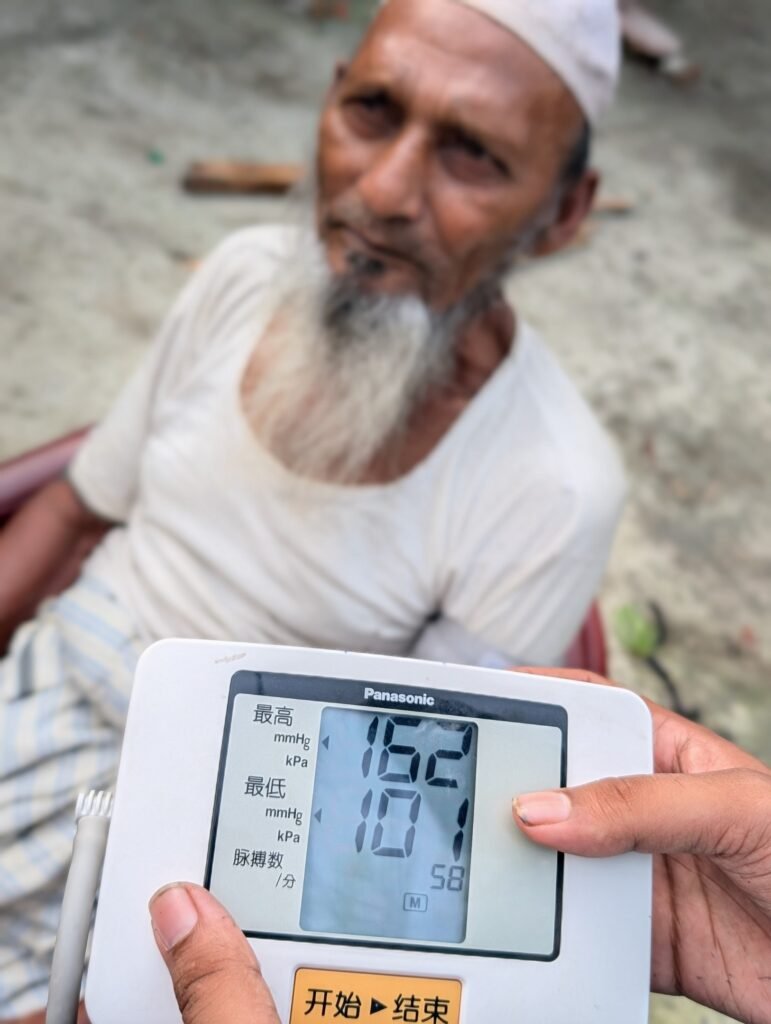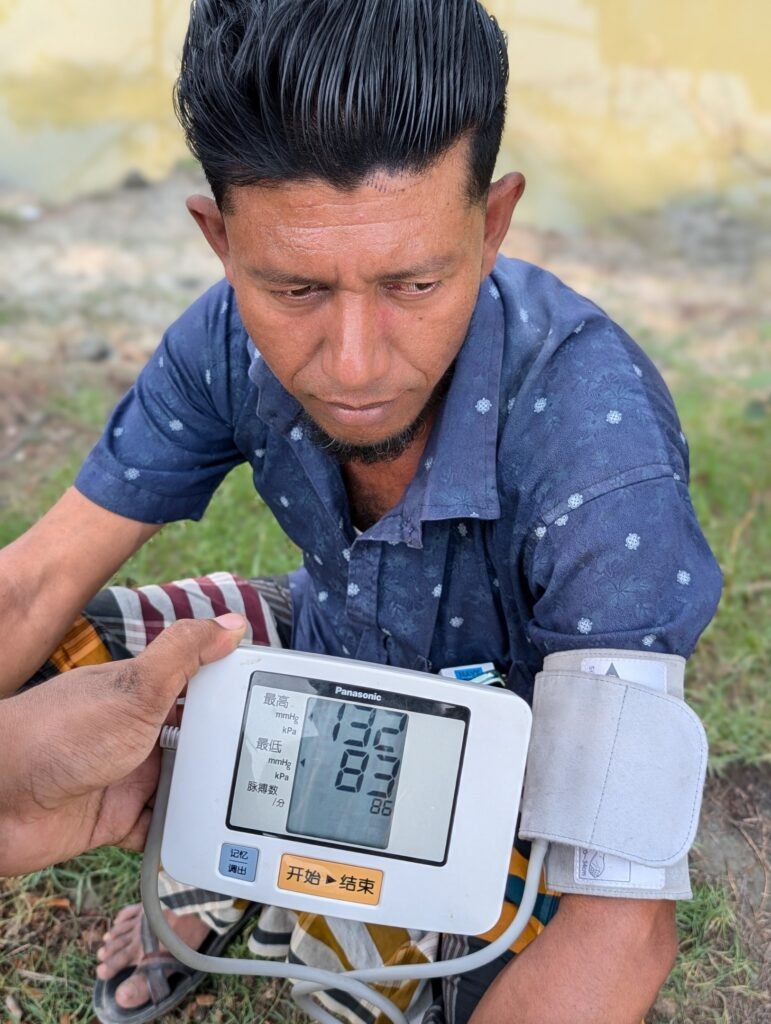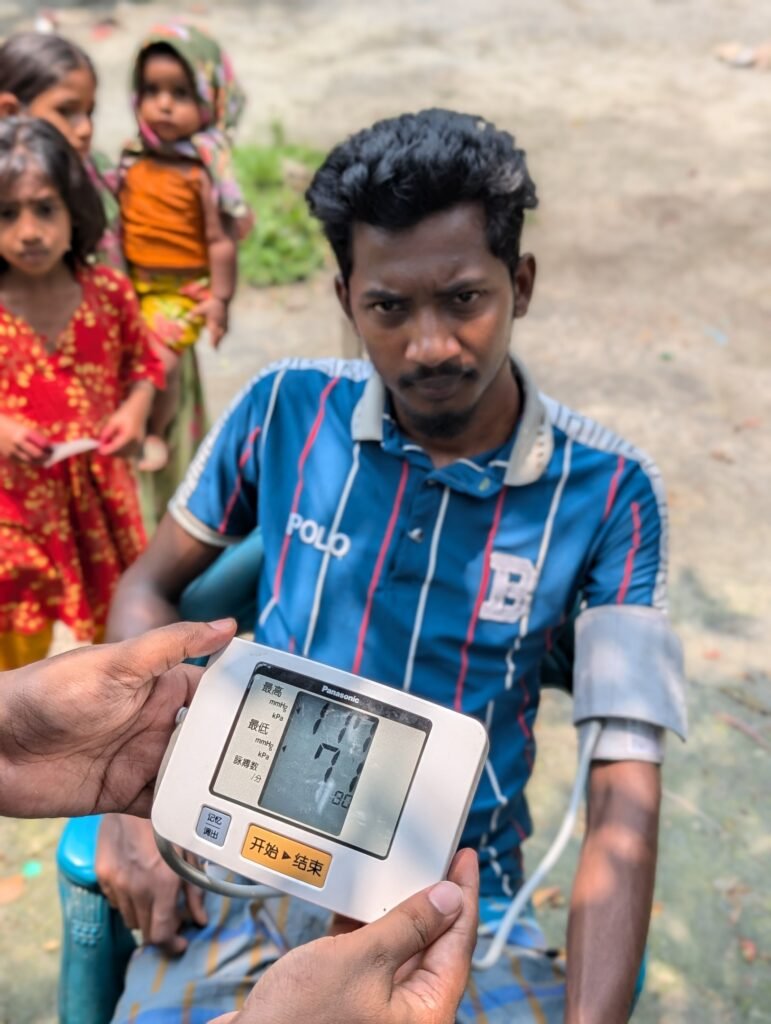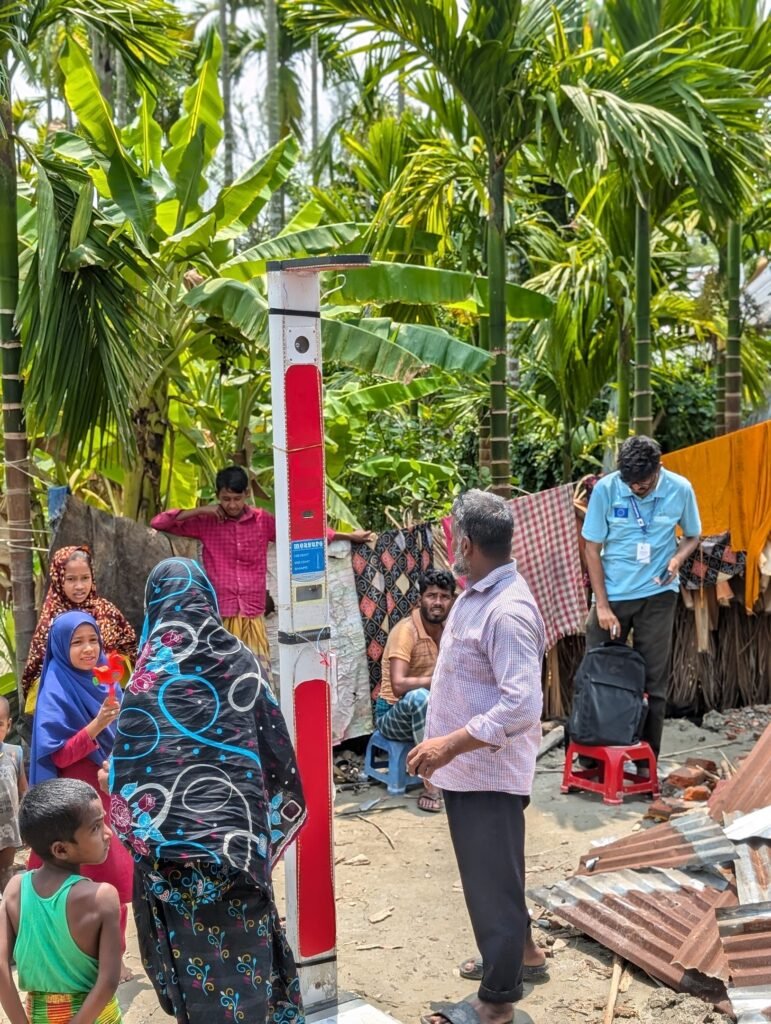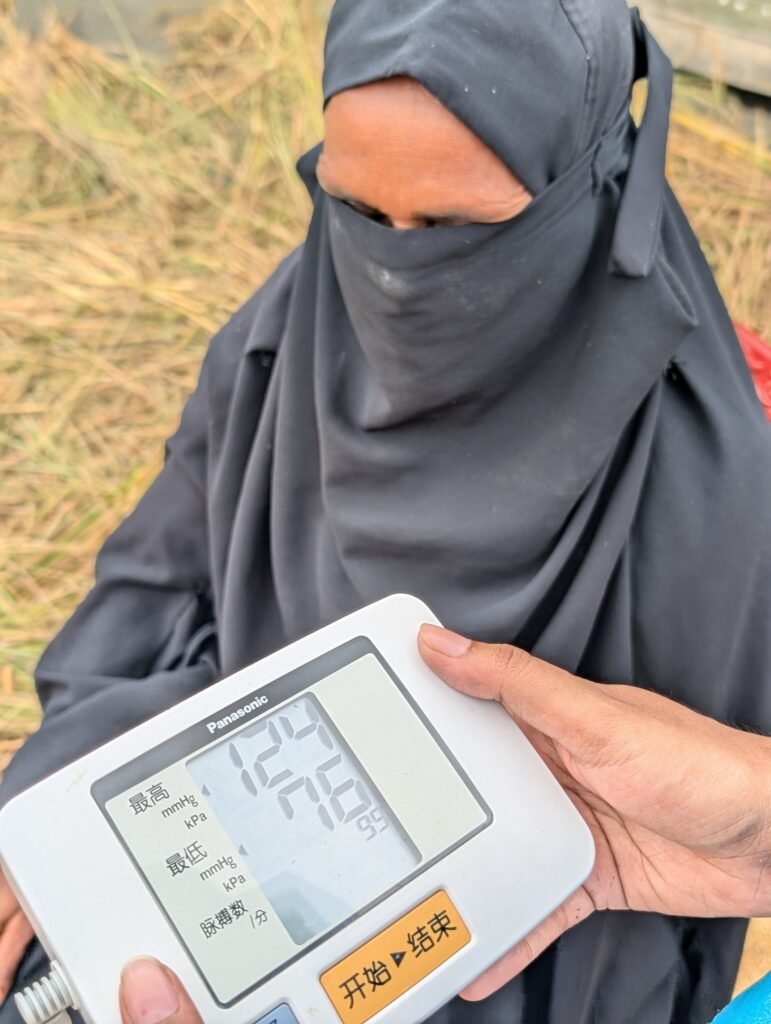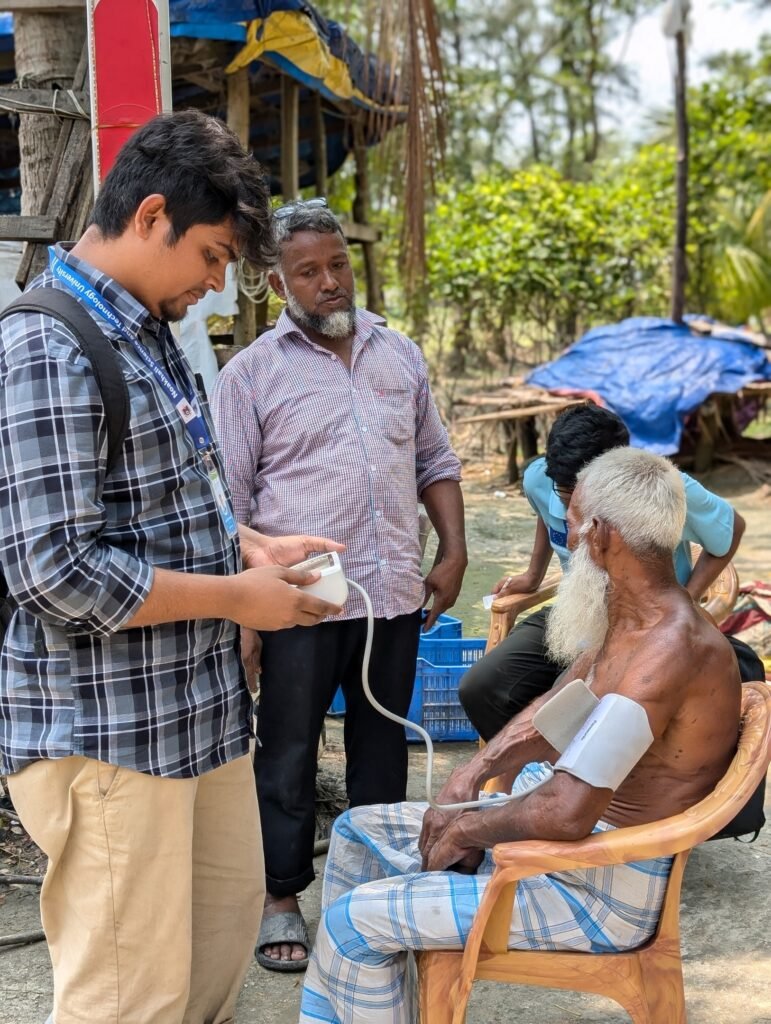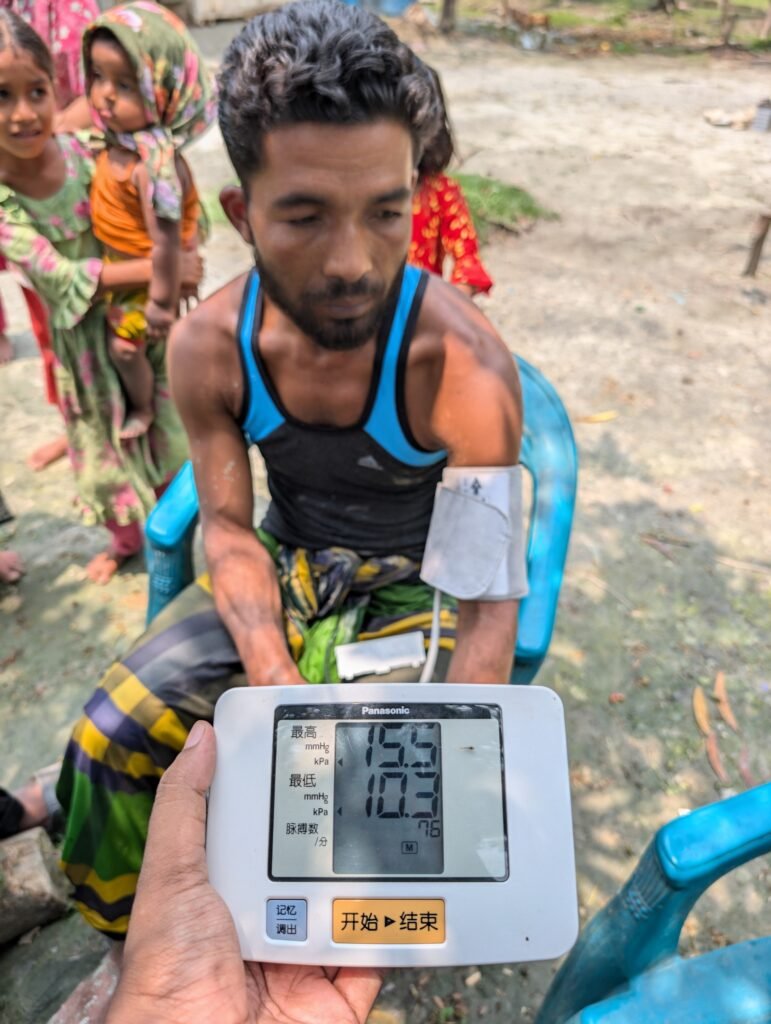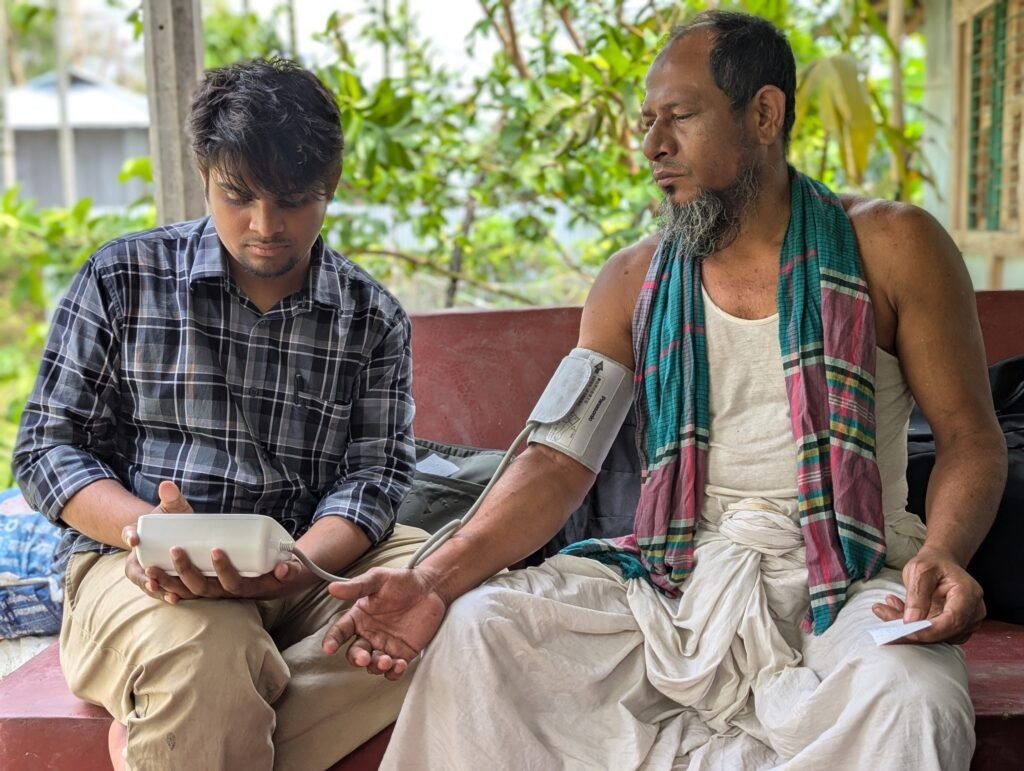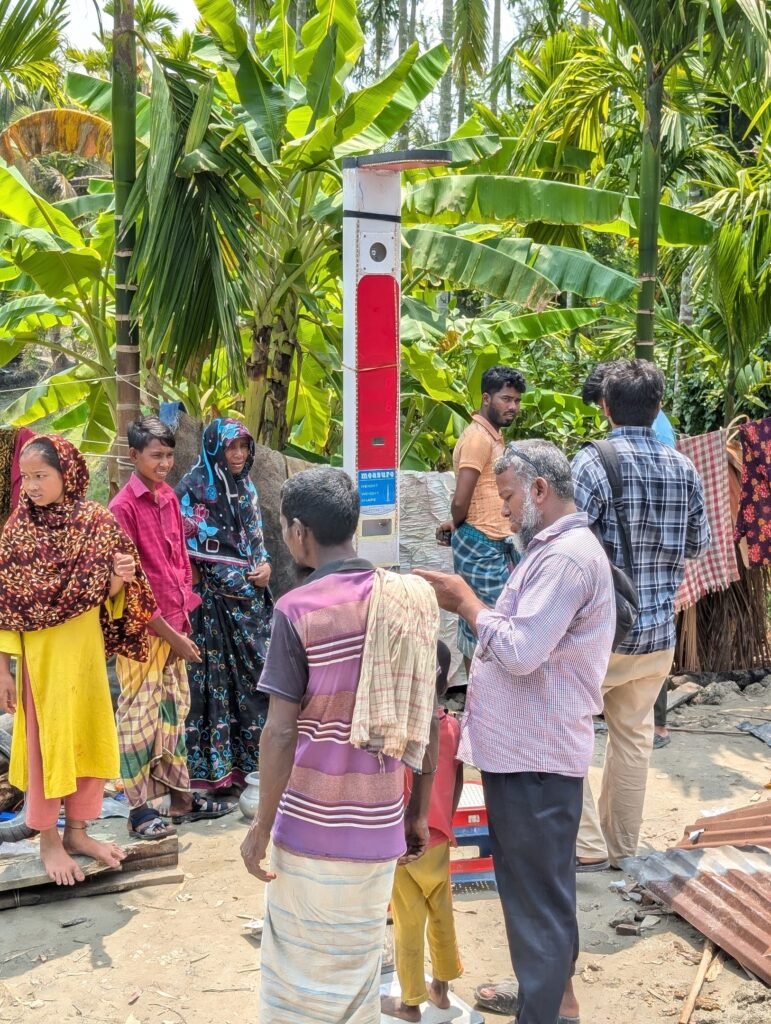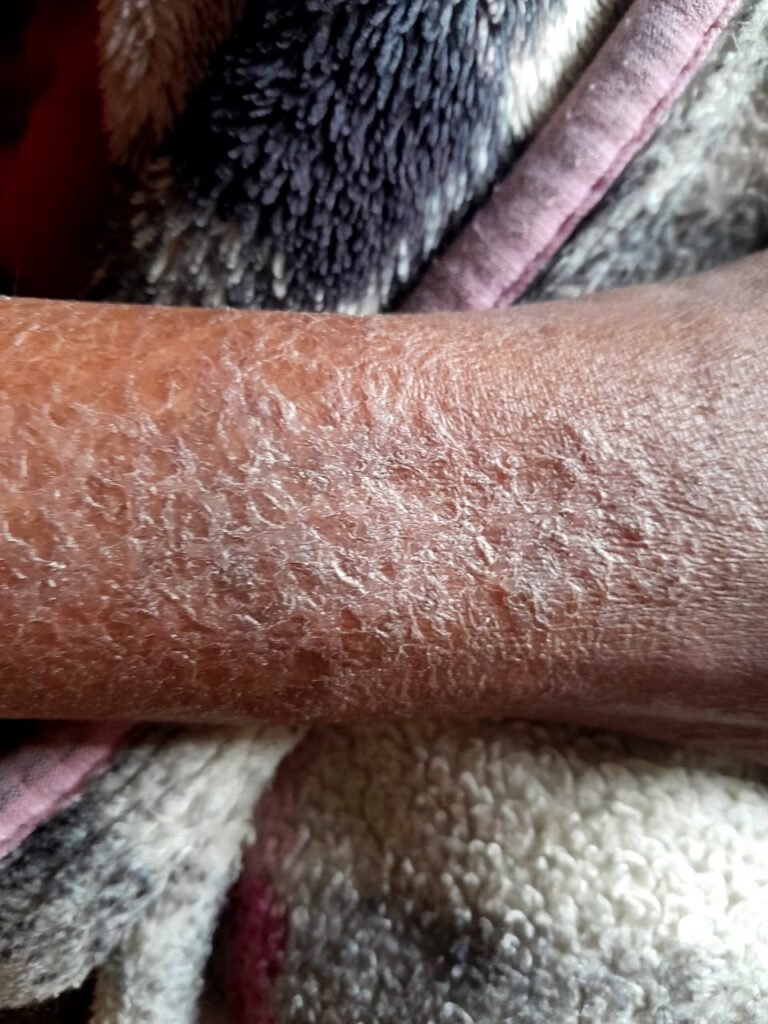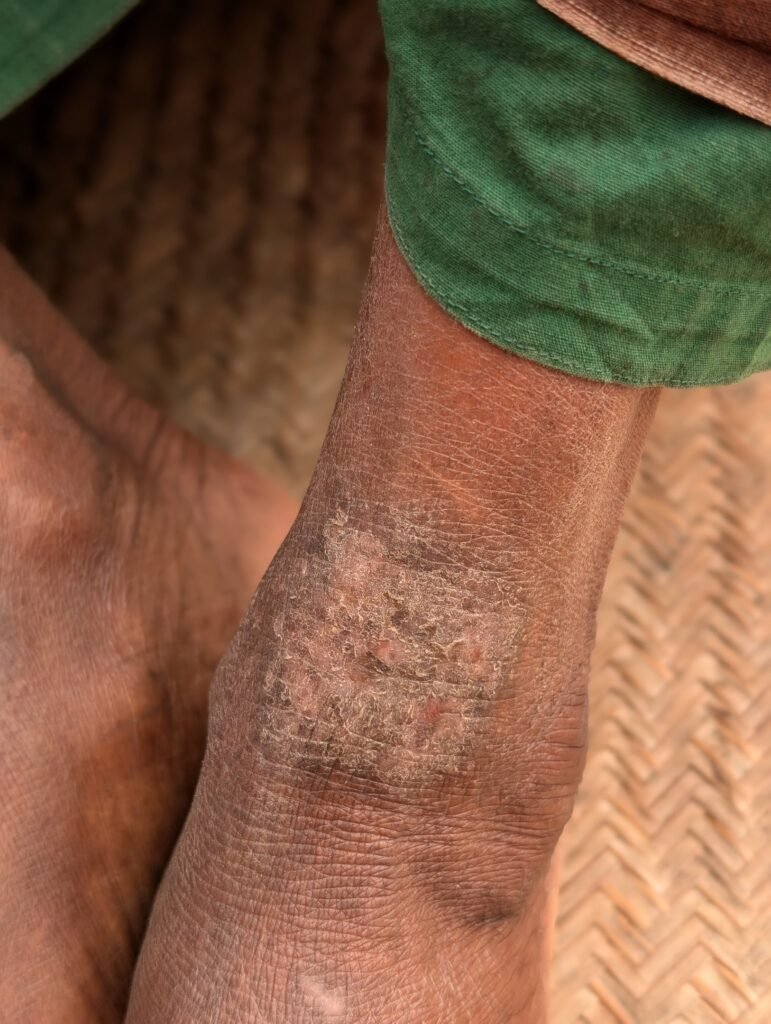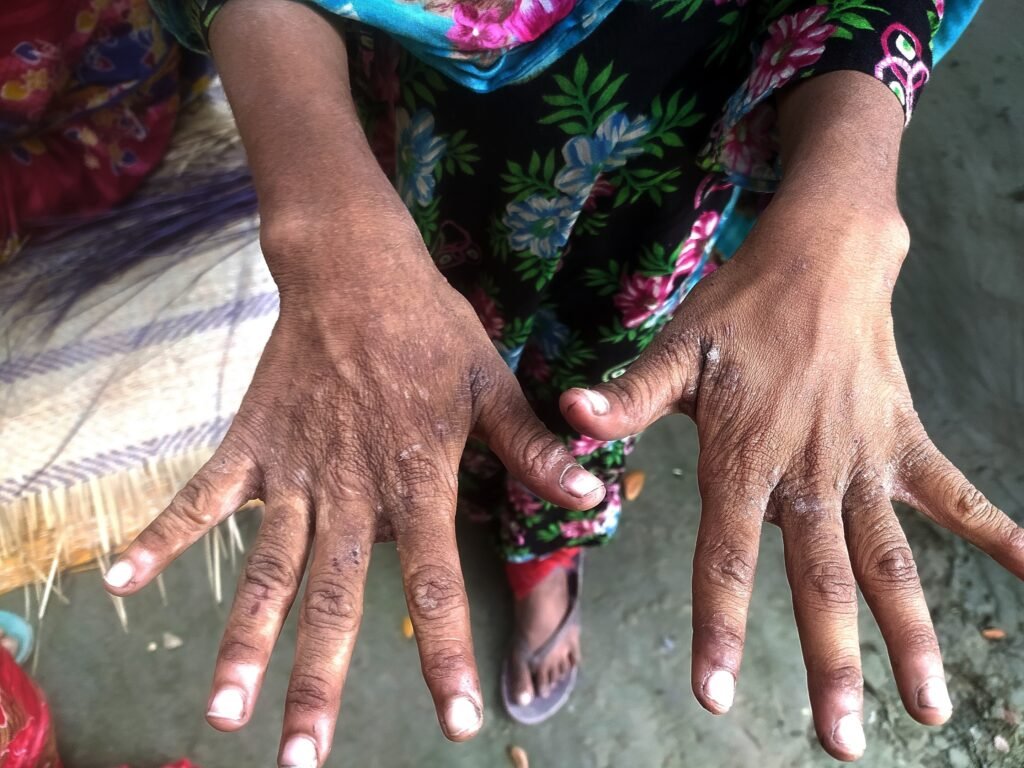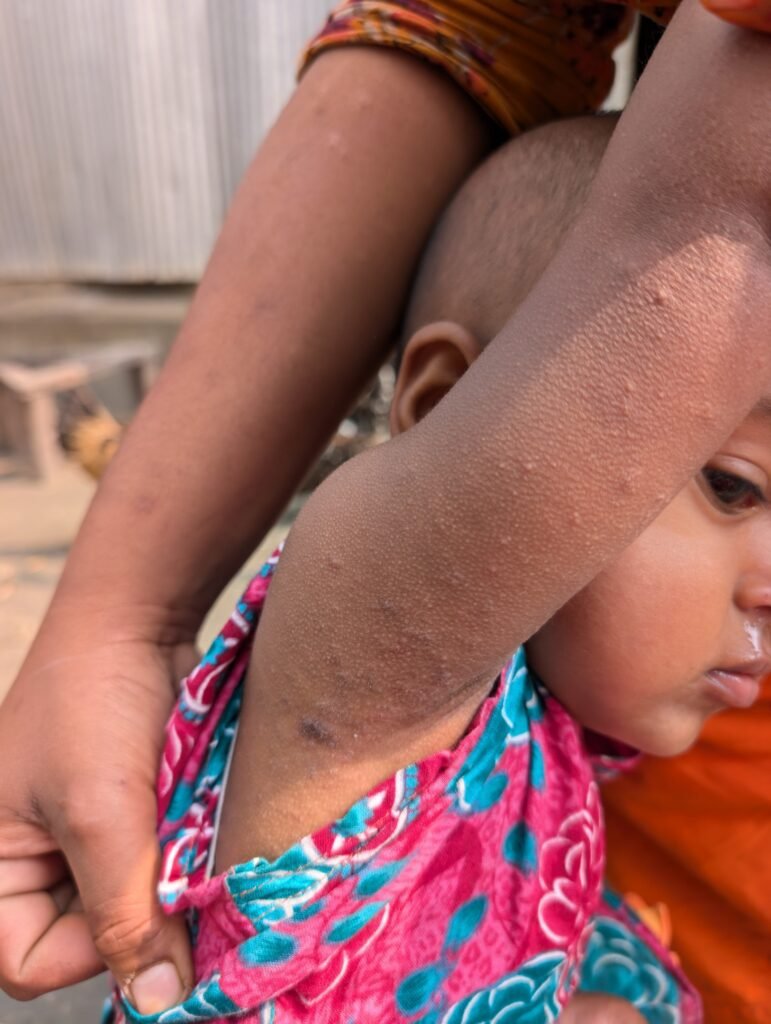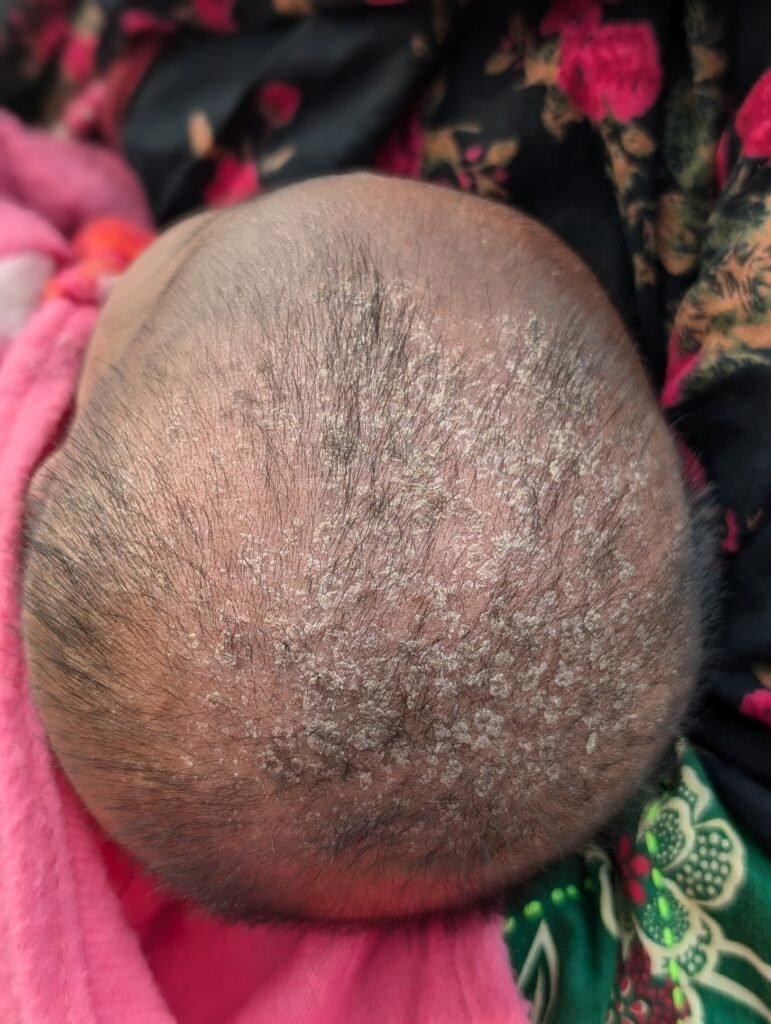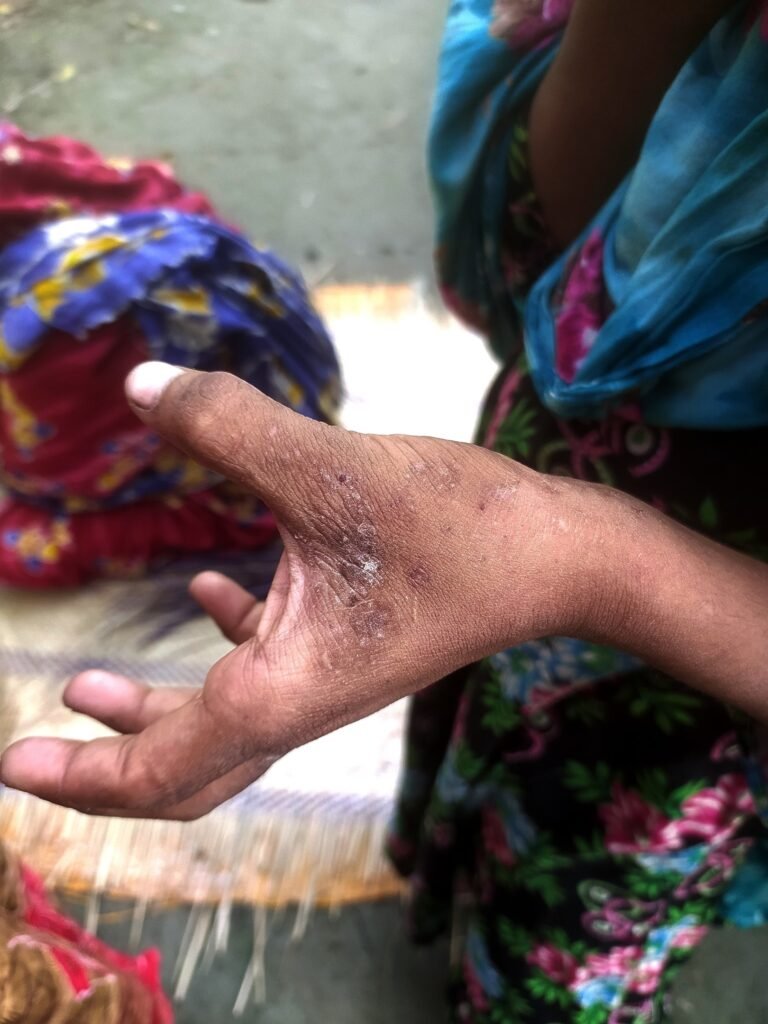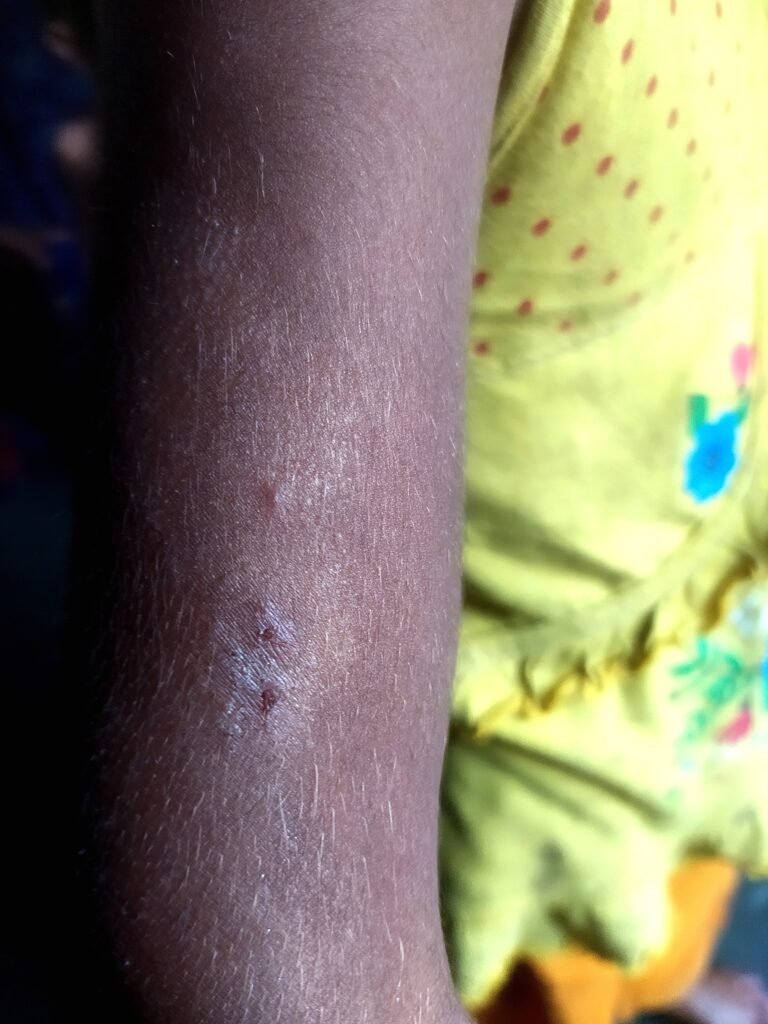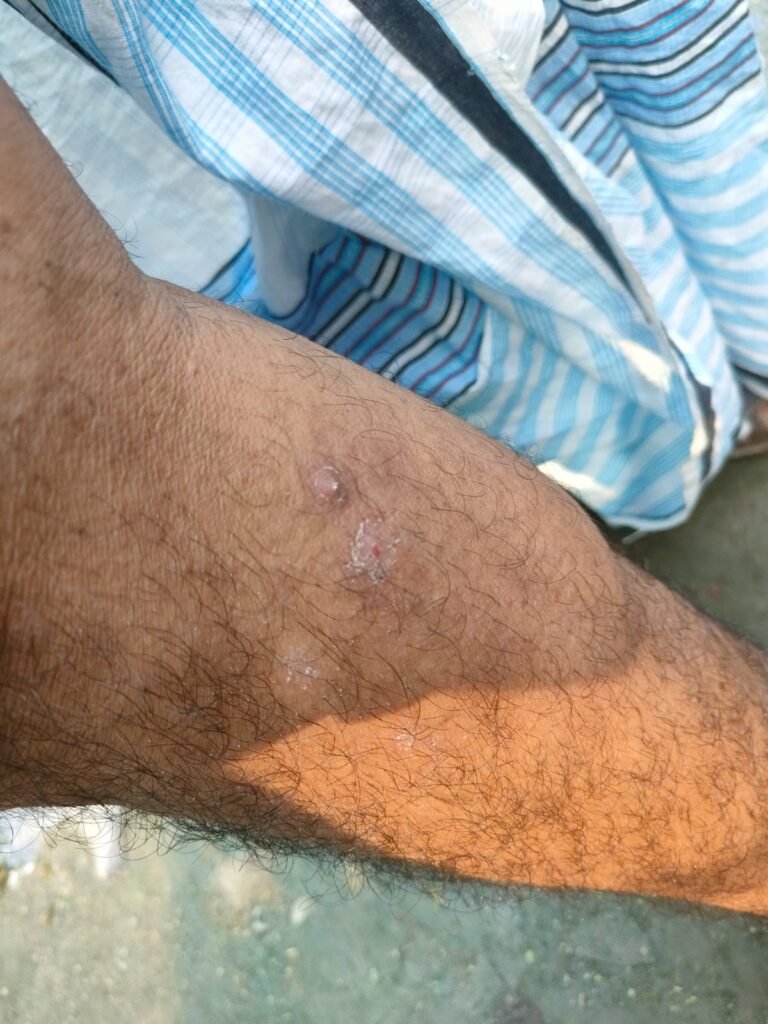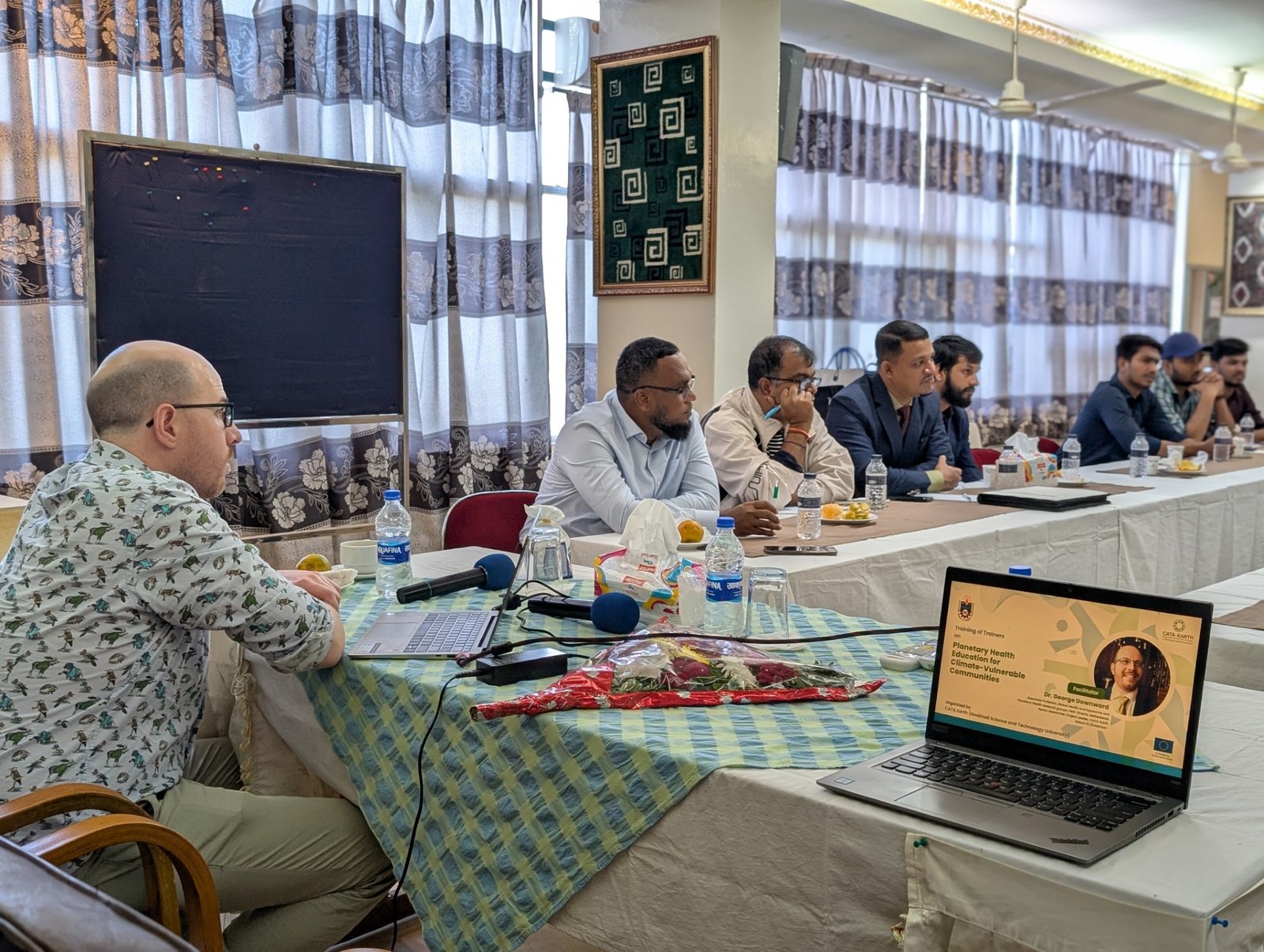The Noakhali Science and Technology University (NSTU) team has completed a detailed health data collection drive across four vulnerable villages in Hatiya upazila. Conducted on April 19, 20, and 26, 2025, the survey covered 197 respondents, offering a rare glimpse into the physical, mental, and reproductive health status of the region’s coastal population.
Among the participants, 134 were female and 63 were male, representing a broad demographic spectrum: adolescents (13–18 years, 34 participants), young adults (19–35 years, 64), middle-aged adults (36–59 years, 51), older adults (60 years and above, 23), and children (0–12 years, 25). This diverse representation enhances the relevance of the findings across both age and gender groups.
The data collection process was rigorous, with three CATA Earth project interns conducting interviews, while an additional two team members measured height, weight, and blood pressure. The team was supported by a trained health worker for blood pressure monitoring and a technician for BMI and height measurements.
The study has revealed a range of pressing health issues among participants, with skin problems emerging as one of the most common complaints. Dietary assessments pointed to a widespread lack of balanced nutrition across all age groups. Particularly alarming were the reproductive health concerns reported by women, with menstrual disorders cited most frequently among young and middle-aged adults, and a notable prevalence among adolescents as well. Infections such as bacterial vaginosis and candidiasis were also commonly reported
“These findings highlight the pressing need for targeted, age-specific reproductive health education and services in coastal Bangladesh. Our work will help shape future interventions and advocacy to address these critical gaps.
—
Dr. Mohammad Mohinuzzaman
Project Lead for CATA Earth at NSTU
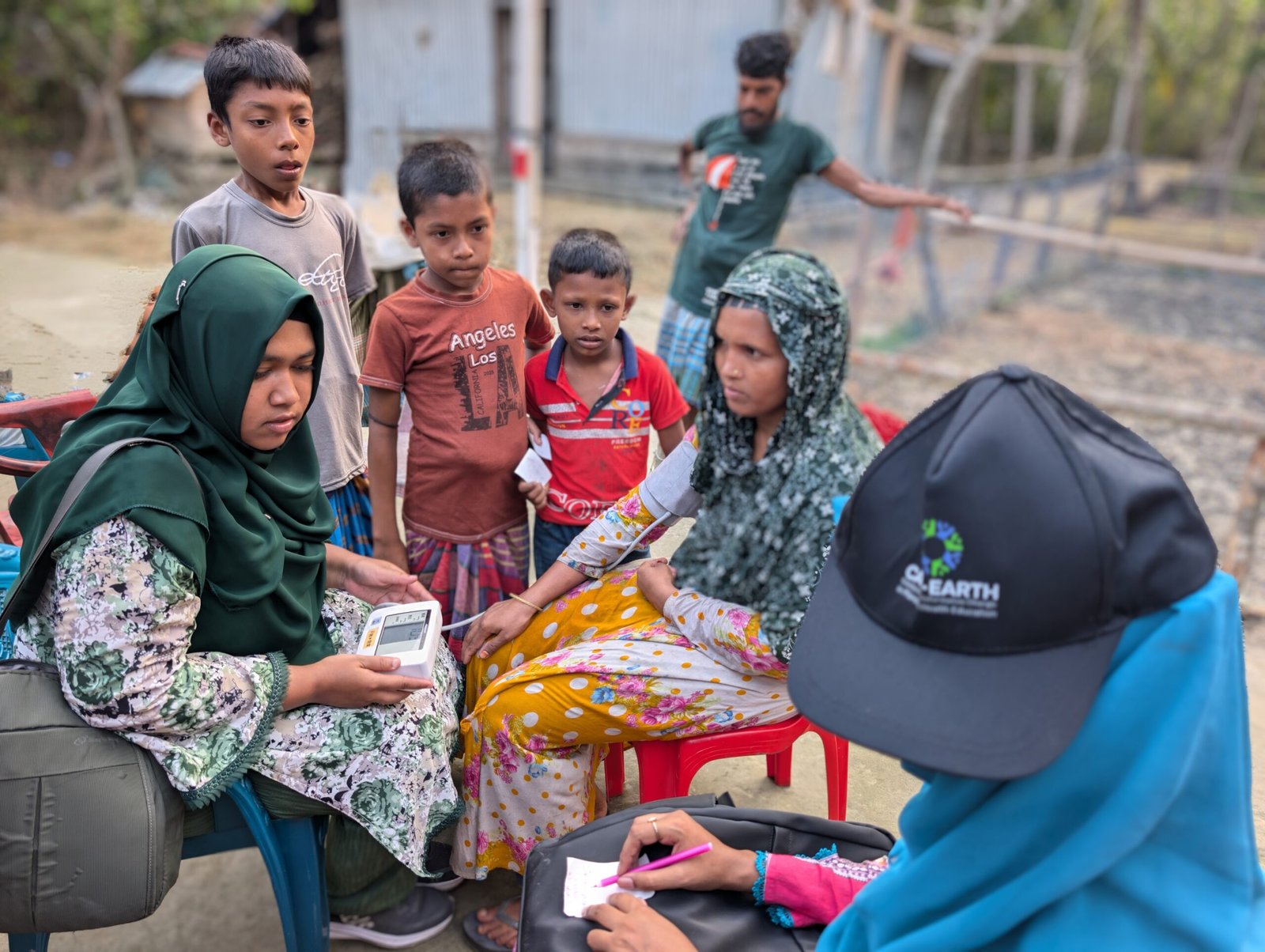
Early pregnancy was frequently reported among adolescents and young adults, underscoring the urgent need for improved sex education and access to contraception. Across all age groups, low awareness of sexual health and reproductive rights was evident. Miscarriages and maternal health complications were primarily reported by women of childbearing age.
“These findings highlight the pressing need for targeted, age-specific reproductive health education and services in coastal Bangladesh”, said Dr. Mohammad Mohinuzzaman, Project Lead for CATA Earth at NSTU. “Our work will help shape future interventions and advocacy to address these critical gaps.”
The NSTU team’s efforts under the CATA Earth project continue to bring to light the unique health challenges faced by coastal communities, paving the way for more informed, community-driven solutions.
Sensitive Content Warning
This section contains real photographs from the health data collection drive conducted in the coastal areas near Noakhali, as part of the CATA-Earth project. Some images depict visible skin conditions and other health issues that may be disturbing or upsetting to some viewers.
We blur these images by default out of respect and caution. Please proceed only if you are comfortable viewing such content.



